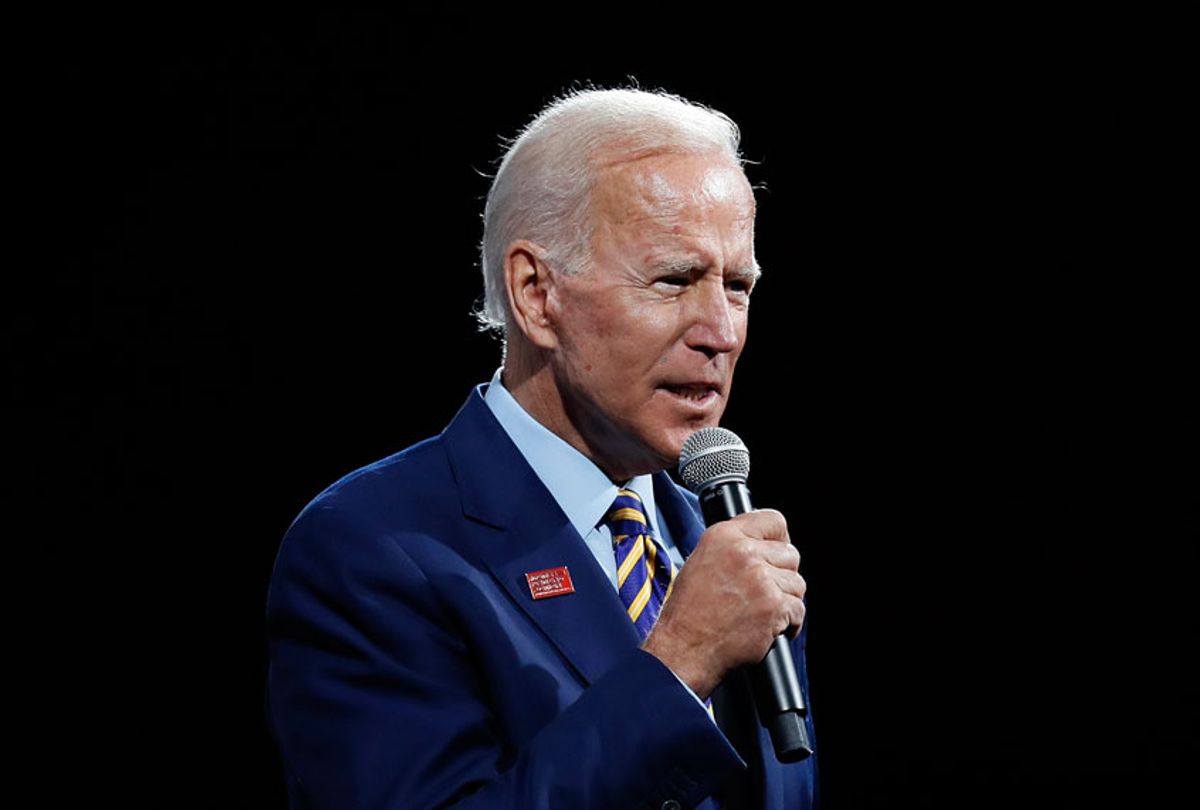Former Vice President Joe Biden said that he would oppose legalizing marijuana on the federal level, claiming that it may be a “gateway drug,” even though research has shown for decades that it is not.
Biden claimed at a town hall event Saturday in Las Vegas that there has “not nearly been enough evidence” to show whether marijuana was a “gateway drug,” ignoring decades of research on the subject.
"The truth of the matter is there's not nearly been enough evidence that has been acquired as to whether or not it is a gateway drug," Biden said. "It's a debate, and I want a lot more before I legalize it nationally. I want to make sure we know a lot more about the science behind it."
Although he does not support legalizing marijuana nationally, Biden added that states “should be able to make a judgment to legalize marijuana.” However, he supports medical marijuana and believes =that marijuana possession “should not be a crime.”
Biden’s new stance on marijuana represents a reversal from the positions he took during his decades-long Senate career. In 1989, Biden complained that the war on drugs, which led to mass incarceration around the country that disproportionately affected communities of color, was “not tough enough” or “bold enough.” Biden called for longer prison sentences for non-violent drug offenders and demanded to “hold every drug user accountable.” Biden wrote many of the federal laws which critics claim exacerbated mass incarceration in subsequent years.
Now that he is seeking the Democratic presidential nomination for a third time, Biden has taken a softer approach on marijuana, but one that is a far cry from the numerous Democratic candidates who have called for full-scale legalization. His criminal justice reform plan calls for the decriminalization of marijuana, and he called for expunging marijuana possession convictions in a speech this summer.
Despite signaling a softer approach on the issue at a time when 67 percent of Americans, including 78 percent of Democrats, support legalization, Biden still believes that the science is out on the issue.
"It is not irrational to do more scientific investigation to determine, which we have not done significantly enough, whether or not there are any things that relate to whether it's a gateway drug or not," Biden said Saturday.
Government and national nonprofit health organizations have long since refuted this Reefer Madness era myth.
The Institute of Medicine said in a 1999 report that marijuana "typically precedes rather than follows initiation of other illicit drug use" but "does not appear to be a gateway drug to the extent that it is the cause or even that it is the most significant predictor of serious drug abuse; that is, care must be taken not to attribute cause to association."
The National Drug Institute on Drug Abuse, which is part of the National Institutes of Health, states that research shows "the majority of people who use marijuana do not go on to use other 'harder' substances.”
On the other hand, there has been extensive research showing that poverty and distressed neighborhoods are structural drivers of drug use. Studies have also shown that associating with people who use hard drugs is a better predictor of such use. Meanwhile, research has shown that criminalizing marijuana can itself be a gateway to harder drugs.
New York City public defender Eliza Orlins slammed Biden for pushing a dangerous myth.
“You must know marijuana prohibition has disproportionately impacted low-income communities & communities of color, fueling mass criminalization, & a crisis of over-incarceration,” she wrote on Twitter. “Perpetuating unsubstantiated theories like this hurts people.”
Attorney Max Kennerly noted that along with nearly 80 percent of Democrats, a majority of Republicans back marijuana legalization.
“If Biden's appeal is supposed to be that he's a centrist,” the trial lawyer tweeted. “He should adopt centrist positions, like marijuana legalization.”



Shares